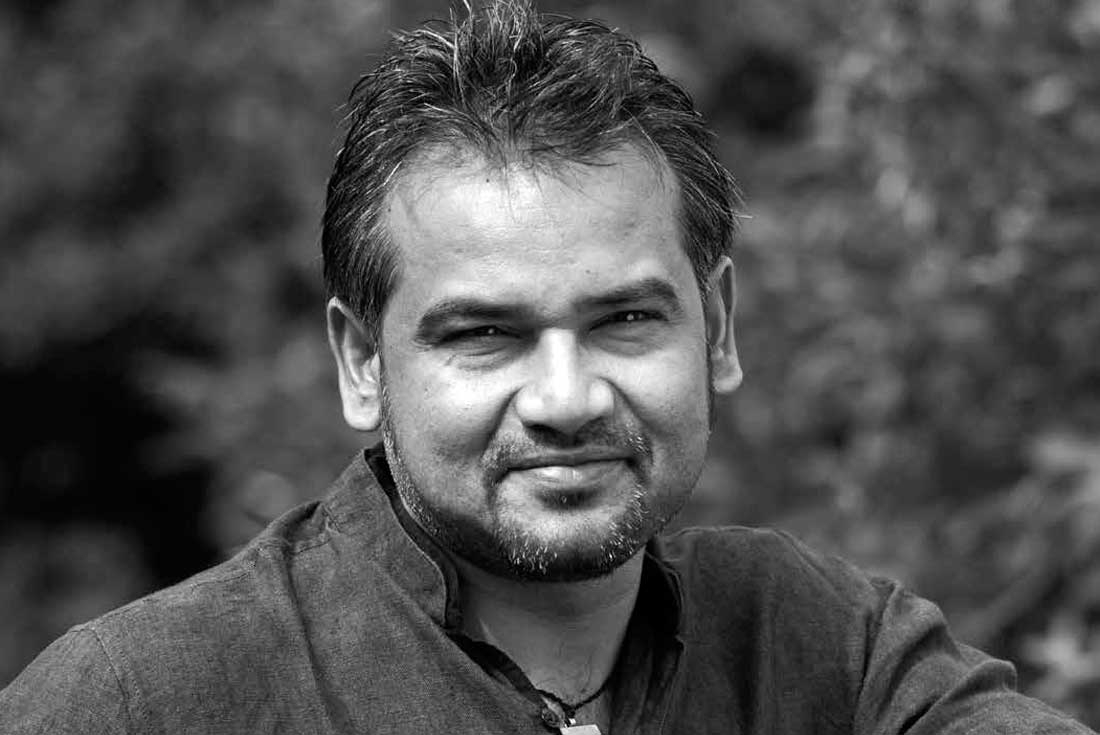

Halkaa tells the story of Pichku, a 9-year-old boy living in the slums who has a problem that won’t go away. He cannot bring himself to go out every morning and defecate in the open fields around the slum. The film follows Pichku as he addresses his problem, battles his self-respect and in the process raises very important questions about people who live on the outskirts of society and are denied the simplest of human rights.
Describe your relationship with cinema.
I believe in the theory that artists are born and not trained. I grew up in a very humble family; for the first 20 years we literally had no access to any form of technology, internet or even a phone. So I grew up listening to stories from the elders of the family. These were stories handed down through generations, or sometimes simply of lives in the village and beyond. That’s how, in that poverty stricken village, I grew up around the art of ‘storytelling’. I was not a good student at all. So the stories became more important to me than my own achievements, as I always felt that I did not have much to say. The entire idea of unlocking the true art of storytelling is how I started my journey in films.
It’s been six years since your debut. What inspired you to make Halkaa?
I still feel that I am a child somewhere deep within my 40-yearold self. The idea of Halkaa came to me from my childhood memories. The story is about a little boy in the slums who feels uncomfortable defecating in the open. I was that boy. The entire plot was in my head, as it is inspired by my own experiences. Through this film I want to bring to the fore the lives of these slum-dwellers, and how the most natural of acts for many can seem very unnatural to one little guy, and that allows us to perceive the situation in a whole new light.
Is Halkaa a sequel to I Am Kalam?
Of course, in a way it is. It’s about a child and his passion for change. It’s about a world which did not give the child his rights. Where the child questions the adults as to why their existence is not counted and valued.
What about this film challenged you as director?
This is truly the most difficult film I’ve shot till date. I had five kids, shooting in the dirtiest environment imaginable, in 48-degree temperature. To bring all the elements, actors and storylines together and to keep a calm head in the sweltering heat was the true challenge.
What did you take away from this experience? What do you hope the viewers take away from the film?
It took me back to my childhood. However old you become, it’s so important to hold on to that innate innocence and keep the child in you alive at all times. I hope the audience gets to do the same—remember their younger selves and lend an ear to the young ones of today. Sometimes, they have the most important questions and observations that we as adults so easily overlook.
Was anything different about your approach to direction this time around?
I felt like I have come a long way. As you grow up, it’s important sometimes to take a look in the mirror and take stock of how far you’ve come. This film was that mirror to me. My whole approach as a director has changed. I used to be impatient and all over the place. With this film, I found a sort of calm and patience that I didn’t know I had developed over the years. It came as a surprise to me.
As a filmmaker, what kind of themes do you find yourself gravitating towards?
The themes I enjoy working on almost always come to me from everyday life. It is my only source of inspiration. The people around me, the streets I walk, the places I go—these are the unstoppered sources of inspiration for both my real and reel life.
Halkaa recently won the top prize, Grand Prix de Montreal at 21st Festival International du Film Pour Enfants de Montréal.
Text Ritupriya Basu